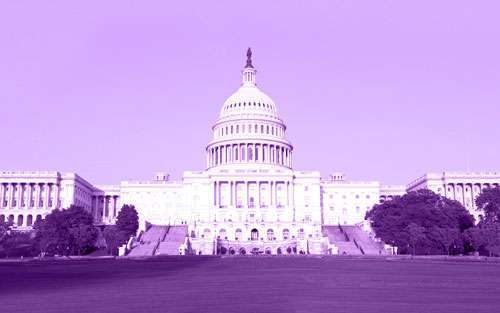

When Congress returned to Washington, D.C., last week after their August recess, there was no shortage of issues they needed to address. An agreement would be needed to keep the federal government open, raise the debt ceiling and fund disaster recovery efforts for Hurricane Harvey.
Every year it is Congress’ job to set spending priorities and fund the federal government. The federal government’s fiscal year will end on Sept. 30, but Congress has yet to approve funding for the next fiscal year, including how much to invest in medical research.
The Pancreatic Cancer Action Network must engage in the budget and appropriations process each year to ensure there is robust, sustained and predictable funding increases for the National Institutes of Health (NIH), the largest source of funding for pancreatic cancer research. A big thank you to everyone who contacted their senators last week, urging them to support an increase in cancer research funding for the NIH in the Labor-HHS appropriations bill for fiscal year 2018 (FY18).
While the NIH is the primary source of pancreatic cancer research funding, the Department of Defense (DoD) funds high-risk, high-reward research grants through their Peer-Reviewed Cancer Research Program (PRCRP). Each year we work to ensure pancreatic cancer is included as a disease eligible for funding through the program and ask Congress for an increase. As early as tomorrow, Sept. 12, the Senate will vote on a bill that could prevent the DoD from funding this important cancer research program. However, an amendment has been offered to ensure this critical research funding continues, and your senators have the opportunity to stand up for a better future for pancreatic cancer patients by supporting the amendment – but they need to hear from you. You can make a significant impact by contacting your senators today.
While a deal was struck last week to fund the government at current funding levels through Dec. 8, we must continue to urge Congress to pass a final funding package for FY18 before the end of the calendar year to ensure the NIH and National Cancer Institute (NCI) have the funding needed to continue their work to make progress against pancreatic cancer including the funding needed to move forward with implementing the Beau Biden Cancer Moonshot initiatives.
As decisions are made on Capitol Hill, we will be calling on you to continue to urge your members of Congress to prioritize cancer research funding for the nation’s toughest cancer.
Thanks to YOU raising your voice and making your priorities known on Capitol Hill, we are moving closer to our goal of doubling pancreatic cancer survival by 2020.














